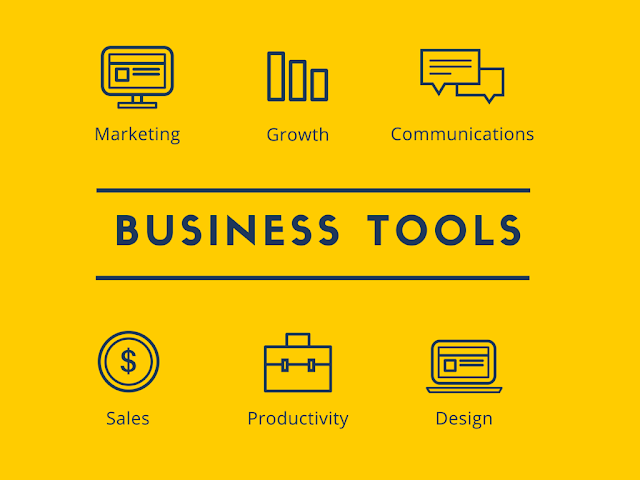1. Learn Everything About Your Target Audience
Successful business growth starts with a deep understanding of your target audience. A target audience, also known as a target market, refers to a specific group of individuals or organizations that a business or marketer aims to reach with their products, services, or marketing messages. This group is selected because they are more likely to be interested in and benefit from what the business offers. Identifying a target audience helps in tailoring marketing strategies, messages, and advertising efforts to be more relevant and appealing to that particular group.
Key characteristics of a target audience may include:
- Demographics: Factors like age, gender, income, education level, marital status, and geographic location.
- Psychographics: These are more about the psychological characteristics of the audience, such as lifestyle, values, interests, attitudes, and behaviors.
- Behaviors: Understanding how the audience behaves, including their purchasing habits, online behavior, and interaction with products or services, can be crucial.
- Needs and Challenges: Knowing the specific needs, problems, or challenges that the target audience faces can help in addressing those issues in marketing messages.
- Preferences: Understanding the preferences and tastes of the audience, including what they like or dislike, can guide product development and marketing strategies.
- Buying Intent: Recognizing the stage of the buying journey the audience is in (awareness, consideration, or decision-making) can help tailor messages accordingly.
Identifying and defining a target audience is a fundamental step
in creating effective marketing campaigns.
Moreover, it helps build stronger connections with potential customers, ultimately leading to increased sales and business growth.
It allows businesses to
allocate resources more efficiently and increase the likelihood of reaching the
right people with the
right message at the
right time.
Who are your ideal customers? What are their pain points, challenges, desires, and preferences?
What are their dream outcomes? Conduct thorough market research to gather valuable insights that will shape your marketing efforts. By knowing your audience inside and out, you can tailor your products, services, and marketing messages to resonate with them.
2. Set Clear and Measurable Goals
To scale your business, you need clear and measurable goals. Define what success looks like for your company. What is your Dream Outcome? Are you aiming for a specific revenue target, market share, or customer acquisition rate? Having quantifiable goals provides focus and direction for your growth efforts, allowing you to track progress and make informed decisions.
For instance, if increased sales and revenue is in your business growth plan, be sure to include a sales cookbook. A sales cookbook refers to a systematic and documented approach to sales processes, strategies, and best practices. It outlines the steps and benchmarks needed to achieve successful sales outcomes.
- Consistency in Sales Approach: It ensures that all members of your sales team follow the same processes and procedures, which can lead to more predictable and reliable results.
- Efficiency and Productivity:
By having specific targets and benchmarks, your sales goals can be achieved more efficiently. You'll know how many of each line item you'll have to sell on a monthly basis. This efficiency will lead to increased productivity and the ability to handle more sales opportunities.
- Improved Customer Experience:
You want to ensure that customers receive a consistent and high-quality experience when interacting with your company. This can lead to improved customer satisfaction and loyalty.
- Adaptability and Continuous Improvement:
Over time, you can refine your sales processes and strategies based on real-world results and changing market conditions. This continuous improvement helps you stay competitive and aligned with your business goals.
- Goal Tracking and Measurement:
They typically include key performance indicators (KPIs) and metrics that can be used to track progress toward your business goals. This allows you to monitor the effectiveness of your sales efforts and make adjustments as needed to stay on course.
3. Develop a Comprehensive Business Growth Plan
A well-structured business growth plan is essential to scale your business. It should assess current evaluations and give an outline of your business's mission, vision, goals, and strategies.
These strategies include sales and marketing plans that covers customer acquisition, retention, and expansion. Your plan should serve as a roadmap that guides your business through each growth phase.
The business growth plan should include:
- Sales Cookbook and Growth Metrics
- Growth Marketing Plan
- Content Marketing
- Brand Positioning
- Web & Digital Marketing
- Social Media Marketing
- Email Marketing
- CRM & Automation
- Lead Generation
- Repeatable Processes
The Business Growth Plan will be your Playbook to help you achieve your monthly goals.
Need help getting a Business Growth Plan done for you?
Click here.
4. Invest in Digital Marketing
In today's digital age, an online presence is crucial for business growth. Invest in digital marketing channels like SEO, content marketing, social media, and paid advertising. Create a cohesive online strategy that attracts, engages, and converts potential customers. Regularly analyze your digital marketing efforts to optimize and refine your approach.
The
Business Growth Plan will highlight all areas of Digital Marketing that will best serve your company goals and attract your target audience.
5. Build a Strong Brand Identity
Your brand is a valuable asset in the growth journey. A strong brand identity sets you apart from competitors and fosters trust with customers. Ensure that your branding is consistent across all touchpoints, from your website and social media profiles to your marketing materials.
A well-defined brand personality and message will resonate with your target audience. Stay consistent with the colors, imagery, tone, voice and so much more.
6. Focus on Customer Experience
Exceptional customer experiences drive loyalty and referrals. Prioritize customer satisfaction by offering top-notch support, personalized interactions, and user-friendly products or services. Collect feedback, listen to your customers, and continuously improve your offerings based on their needs and preferences.
Your company's online reputation is vital to your success. When potential customers read reviews and testimonials, they'll find comfort in knowing they made the best choice for themselves.
7. Expand Your Product or Service Offerings
Diversifying your product or service offerings can open new revenue streams and attract a broader customer base. Consider expanding your product line, introducing new services, or targeting new market segments. Make sure these expansions align with your core values and brand identity.
It may not always be a "new" product or service, but a "new" way customers can do business with you. For example, I implemented a monthly recurring revenue service option for a pest control client. The sales team was able focus on selling top 4 package options - making the customer happy that they have a consistent payment and service so that their property is protected from the area's most common pests.
However, the benefit was far greater for my client, the pest control company, because they were able to grow from $2MM to $6MM in just 2 years!
Internal sales had a focus on achieving their sales goals. And my marketing team was able to highlight the packages as we focused on sharing messages for all the pains and concerns of the variety of pests in that region. They were able to sell the company for a $12MM valuation and successfully scaled the business.
Explore expansion opportunities and be creative!
8. Leverage Data and Analytics
Data-driven decision-making is essential for growth. Implement analytics tools to track key performance indicators (KPIs) and gather insights into customer behavior. Use these insights to refine your strategies, identify opportunities, and address weaknesses. Regularly analyze your data to stay agile and responsive to market changes.
9. Nurture Partnerships and Alliances
Collaboration can accelerate growth. Form strategic partnerships and alliances with complementary businesses in your industry. These partnerships can lead to joint marketing initiatives, expanded distribution channels, and access to new customer segments. Building a network of supportive partners can provide your business with valuable resources and opportunities.
10. Plan for Scalability and Sustainability
When you plan to scale your business, it should not compromise its sustainability. Develop processes, systems, and infrastructure that can handle increased demand without sacrificing quality. Hire and train staff effectively, automate repetitive tasks, and invest in scalable technology solutions. Ensure that your business growth is both profitable and sustainable.
In Conclusion
Scaling a business is a complex and rewarding endeavor that requires careful planning, dedication, and a strategic mindset. By understanding your target audience, setting clear goals, and investing in digital marketing, you can lay the foundation for sustainable growth. Building a strong brand identity, focusing on customer experience, and leveraging data analytics are essential for long-term success. Expanding your product or service offerings, nurturing partnerships, and planning for scalability will help you navigate the challenges of growth effectively.
Remember that growth is a journey, not a destination. It requires ongoing adaptation and a willingness to embrace change.
With the right growth strategy in place, you can take your business to new heights and achieve the success you've always envisioned.
Your Fractional CMO,
Emilia Andrews











































































































